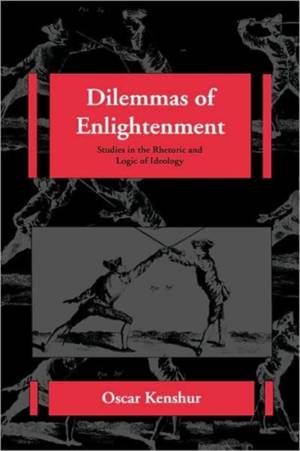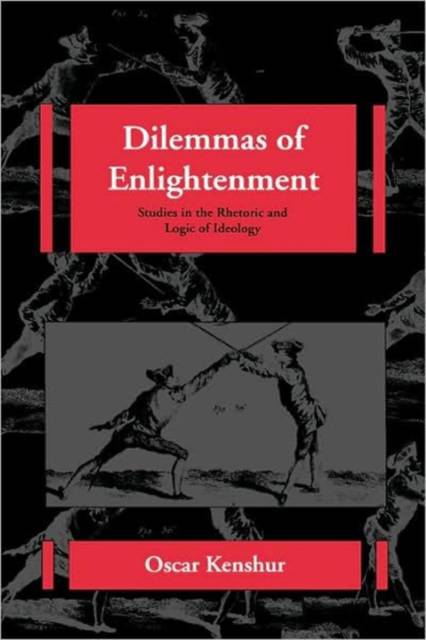
- Afhalen na 1 uur in een winkel met voorraad
- Gratis thuislevering in België vanaf € 30
- Ruim aanbod met 7 miljoen producten
- Afhalen na 1 uur in een winkel met voorraad
- Gratis thuislevering in België vanaf € 30
- Ruim aanbod met 7 miljoen producten
Zoeken
€ 106,95
+ 213 punten
Omschrijving
Oscar Kenshur combines trenchant analyses of important early-modern texts with a powerful critique of postmodern theories of ideology. He thereby contributes both to our understanding of Enlightenment thought and to contemporary debates about cultural studies and critical theory.
While striving to resolve "dilemmas" occasioned by conflicting intellectual and political commitments, seventeenth- and eighteenth-century writers often relied upon ideas originally used by their enemies to support very different claims. Thus, they engaged in what Kenshur calls "intellectual co-optation." In exploring the ways in which Dryden, Bayle, Voltaire, Johnson, and others used this technique, Kenshur presents a historical landscape distinctly different from the one constructed by much contemporary theory.
While striving to resolve "dilemmas" occasioned by conflicting intellectual and political commitments, seventeenth- and eighteenth-century writers often relied upon ideas originally used by their enemies to support very different claims. Thus, they engaged in what Kenshur calls "intellectual co-optation." In exploring the ways in which Dryden, Bayle, Voltaire, Johnson, and others used this technique, Kenshur presents a historical landscape distinctly different from the one constructed by much contemporary theory.
Specificaties
Betrokkenen
- Auteur(s):
- Uitgeverij:
Inhoud
- Aantal bladzijden:
- 272
- Taal:
- Engels
- Reeks:
- Reeksnummer:
- nr. 26
Eigenschappen
- Productcode (EAN):
- 9780520081550
- Verschijningsdatum:
- 1/11/1993
- Uitvoering:
- Hardcover
- Formaat:
- Genaaid
- Afmetingen:
- 155 mm x 247 mm
- Gewicht:
- 616 g

Alleen bij Standaard Boekhandel
+ 213 punten op je klantenkaart van Standaard Boekhandel
Beoordelingen
We publiceren alleen reviews die voldoen aan de voorwaarden voor reviews. Bekijk onze voorwaarden voor reviews.











